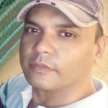25 Best Books to Understand the Israel-Palestine Conflict
Historical books about the Palestine-Israel conflict

We are talking about Best Books to Understand the Israel-Palestine Conflict. For most ordinary readers, reading books that have been tested for a long time and still retain a strong explanatory power is a shortcut to refer to this international difficult situation, or at least it will help most ordinary readers. Understand the basic clues and background of the Israeli-Palestinian conflict from a perspective
The Palestinian-Israeli conflict has recently continued to escalate, causing more people to pay attention to Middle East affairs again. The "Palestinian-Israeli conflict" and even the Middle East issue can be said to be one of the most thoroughly studied fields in the world.
Professional researchers from various disciplines such as history, religion, ethnology, diplomacy, and international politics have set foot in this area. The academic Red Sea has published a large number of excellent books, which can be said to be full of sweat.
But today, the Palestine issue and the Palestine-Israel conflict, whether in academic circles, political circles, or religious circles, are still at odds on possible solutions, even in the academic field.
If you want to thoroughly study an academic issue, the most critical first step is to find the most important books on the issue. As for the most important books discussing the Palestine-Israel conflict, they must include "Jerusalem: The Biography", "The Bible and the Sword", "Enemies and Neighbors", etc.
They have repeatedly appeared in academic discussions on the Middle East issue, and they have been Scholars frequently quote. These three books can be regarded as a general and overview introduction to the issue of the "Palestinian-Israeli conflict".
How do you think about the recent Palestine-Israel conflict? Are there any books on this period of history recommended?
Historical books about the Palestine-Israel conflict
Table Of Contents
1. The Bible and the Sword
2. Jerusalem: The Biography
3. Enemies and Neighbors
4. From Beirut To Jerusalem
5. My Promised Land
6. Palestine: Peace Not Apartheid
7. The Invention of the Jewish People
8. After the Last Sky
9. How I Stopped Being a Jew
10. The Invention of the Land of Israel
11. Mornings in Jenin: A Novel
12. Sonora
13. I Saw Ramallah
14. Kingdom of Olives and Ash
15. An Improbable Friendship
16. The Way to the Spring
17. To the End of the Land
18. Drinking the Sea at Gaza
19. Our American Israel
20. Dear Zealots
21. The Ethnic Cleansing of Palestine
22. Strangers with the Same Dream
23. All the Rivers
24. Sadness Is a White Bird: A Novel
25. Out of Place: A Memoir
25 Best Books to Understand the Israel-Palestine Conflict
1. The Bible and the Sword
by Barbara W. Tuchman
The Bible and Sword: England and Palestine from the Bronze Age to Balfour
"The Bible and the Sword" is a masterpiece by the famous historian Barbara Tachman. Tuchman's historical writing is known for its literary and factual nature. He is good at nesting the sorrows and joys of specific characters in a grand vision, and he uses vivid details to cut into the reflection on historical events.
The main thrust of "The Bible and the Sword" is to trace the international political roots of Zionism. Under the premise of mastering a large amount of precious historical materials, Tachman pointed out that the support of the United Kingdom played a key role in the success of the Zionist nation-building.
The reason why the United Kingdom is doing this is due to two reasons. One is the psychological indebtedness to the Jewish nation, and the other is the need for its own strategic goals in the region. The "Bible" and "Sword" in the title of the book are meant to be this.
2. Jerusalem: The Biography
by Simon Sebag Montefiore
Simon Montefiore is an internationally renowned "all-rounder" writer. He is not only a historian, novelist, journalist, and documentary writer. His work has won numerous awards, and many of his works have been or are being adapted into film and television works.
"Jerusalem: The Biography", "Catherine the Great and Potemkin", and "Young Stalin" have won many international book awards. "Jerusalem: The Biography" is hailed as the most readable masterpiece of the history of world religions in recent years and an excellent work "using history to explain religion".
The author himself has a very strong family, and there were European diplomats and bankers in his clan, and his great-uncle, Sir Moses Montefiore, was the one who built the first Jewish residential area outside the Old City of Jerusalem.
Jerusalem is the capital of two nations, and it is also the holy land of the world's three major religions. The history that has taken place around this city is thrilling and misty.
In particular, it is shrouded by various religious legends and nationalist narratives, as well as geopolitical disputes, which have caused the city's history to be infected with complexity and controversy.
"Jerusalem: The Biography" follows the chronological order of three major religions around the "holy city" competition, with the rise and fall of several major families as the mainline, vividly narrating the past and present of Jerusalem, and reflecting on many forgotten histories.
3. Enemies and Neighbors
by Ian Black
"Enemies and Neighbors" is a must-read for understanding the Palestine-Israel conflict, and it has repeatedly appeared in various book lists and academic articles related to Middle East issues. Prior to this book, most researchers' views on this issue were completely divided into two categories.
They either analyzed the rationality of their demands from the standpoint of the Palestinians or supported Israel’s standpoint, demonstrated that the Jews returned to their ancestral homes, and reaffirmed their historical rights. Legality.
"Enemies and Neighbors" took a unique approach, did not easily choose one side, but wrote the history of Palestine from the perspective of both the Palestinians and the Jews. That is what the author said, "tell the stories of both sides from the perspective of both sides, and the entanglement of their fate with each other".
The basic clue of the whole book is the narrative of the two nations, Palestine and Jews, which are diametrically opposed to each other to a large extent.
Related Reading :Best Neil Gaiman Books of All Time
4. From Beirut To Jerusalem
by Thomas L. Friedman
Thomas Friedman is also a world-class best-selling author, whose work is best known to the public as the "World Is Flat" series. Friedman himself is an American Jew and is fluent in Hebrew and Arabic. In the early 1980s, he served as the "New York Times" interview director in Lebanon.
Based on his personal experience in the Middle East, he wrote "From Beirut to Jerusalem", which fully and vividly described the Jewish state and the Palestinian-Israeli conflict. It has been 40 years since the original English edition of this book, and it is still one of the must-reads for studying Middle East issues.
"From Beirut to Jerusalem" is based on Western observations, witnessing and telling the Arab-Israeli conflict and the Lebanese civil war. The author did not make a simple statement of the situation in the Middle East, nor did he make an academic explanation of the Arab-Israeli contradiction.
Instead, he used his own personal investigation to focus on the daily mentality and attitude of the people at the center of the contradiction. Friedman uses the rich material obtained from extensive contacts with people from all walks of life to dig deeper into the deep connotations of ethnicity, religion, culture, and society, reflecting the complex landscape of social contradictions in the Middle East.
5. My Promised Land
by Ari Shavit
"My Promised Land": The Triumph and Tragedy of Israel. The author of this book is the famous Israeli columnist Ali Shavit. Although he is now an Israeli, his great-grandfather Herbert Bentway originally lived in a peaceful and comfortable England.
Many people will wonder why Bentway gave up the stable and happy life and chose to return to the homeland that is no longer there. Perhaps this is the answer that the author has been looking for. In "My Promised Land", he shows the Jews' feelings for "hometown" and "home".
There are seventeen chapters in the book, mainly about three aspects. One is that Herbert Bentway gave up the original comfortable life in Britain, embarked on a voyage ship, returned to his homeland, and found his no longer homeland.
It is no longer a Jewish territory, and most of the Arabs live there. The second is that the Jews decided to establish their own country on the land of the Arabs. They wanted to live in their original hometown.
Perhaps in the hearts of the Jews, this land is their root. After experiencing countless wars and firm belief in "home", we finally saw what is now Israel. The third is the status quo of Israel and the threats Israel faces.
"My Promised Land" talks bluntly about the pioneering spirit of Zionism but also pays attention to the dramatic life stories of the protagonists in the book. Former Israeli Prime Minister Ehud Barak commented: ""My Promised Land" is an exploration of the shocking experience of a suffering motherland by a humanitarian. It is an ultimate personal Odyssey. At the center of global attention."
6. Palestine: Peace Not Apartheid
by Jimmy Carter
"Palestine: Peace Not Apartheid" This is the memoir of former U.S. President Jimmy Carter. It tells the author's personal history of the Middle East, as well as his personal experience with the major political figures in the region. Carter has promoted the Egypt-Israel peace treaty as president and has been involved in Middle East affairs for a long time.
Therefore, he has a deep understanding of the root causes of the conflict in the Middle East, the crux of the long-term Israeli-Arab confrontation, the plight of the Palestinians, and the feasible solutions to these problems. Carter said frankly that if Israel wants to achieve lasting peace, it must allow the Palestinians to enjoy fair treatment and dignity.
The book does not have the literary beauty of Tuchman, nor does Ian Black’s majestic observational vision, and the writing is exhaustive, involving many clues to the characters, and it is boring to read, but it is the central character of the storm on the Arab-Israeli problem.
First-hand observations and records are important works that break the existing narrative paradigm. This book helps readers understand the roots of the Arab-Israeli confrontation in the Middle East and the crux of the conflict between Palestine and Israel.
7. The Invention of the Jewish People
by Shlomo Sand
"The Invention of the Jewish People". This is the foundation work of Shlomo Sand's "fictional trilogy", challenging mainstream historiography and overturning the past Israeli history and Jewish mythology. The author believes that the formation of the Jewish nation and the Israeli state is a history of "codification" or "fiction".
At the same time, it points out that most Jews live scattered all over Europe, especially in the Middle East and Eastern Europe. The reason why these scattered and different groups can form the Jewish nation, And then become a Jewish country, can only resort to the history that has been adapted.
The strong exclusive national identity of the Israelis is not ancient, but it was invented by historians, archaeologists, and other spokespersons of human memory since the second half of the 19th century.
8. After the Last Sky
by Edward W. Said
"After the Last Sky". This book can be counted as a "video book". The text part is written by the famous public intellectual Edward W. Said, and the video part is the living conditions of Palestinians taken by the famous humanitarian photographer Jean Moore. More than 130 stunning photos.
Said was born in Jerusalem in 1935. During the British occupation, he attended Western schools in Palestine and Cairo, Egypt. He received British education. In the 1950s, he went to the United States to study and obtained a Ph.D. from Harvard University.
Since 1963, he has taught at Columbia University. His representative works include "Oriental Studies" and "The Question of Palestine". As a public intellectual, when Said's writing involves the Palestinian issue, he often portrays the Palestinian experience for readers from an internal perspective and regards it as a spiritual country.
Related Reading : The Charlie Munger Reading List (45 Books Recommended)
The author is committed to fighting for equal politics and human rights for the Palestinians in Israel and asking the United States to exert pressure on Israel to protect and respect these rights. He is known as the "most powerful political voice" of the Palestinian people.
When Palestinians appear in world news headlines, they are often associated with negative images such as terrorists and refugees, but the real-life situation of these people is poorly known to the outside world.
Through Said's words and Jean Moore's photographs, this book together depicts another vivid portrait of the Palestinians. Said’s words in the foreword are the best commentary on the subject of the book: “Let’s use these photos and captions to tell the story of the Palestinians that have never been mentioned before.”
9. How I Stopped Being a Jew
by Shlomo Sand
"How I Stopped Being a Jew". The famous Israeli historian Shlomo Sand recalled his growth experience in this book, tracing the history of the Jewish nation and Israel, with both emotional and intellectual writing, and boldly exposed Israel's concept of "God's chosen people" and the Holocaust.
The preaching of suffering questioned the way in which the Jewish nation was defined, and criticized the deep-rooted concepts and the reality that has become a habit: the solidification of Jewish identity, the moral superiority of the Jews, the racial politics of Zionism, and the hierarchical differences of Israel.
And colonialism... After questioning and criticizing, Sander envisioned a secular, non-exclusive, and trans-Zionist Israeli identity, a future guided by candid and generous universal principles.
As I cannot bear the fictitious national attributes imposed by the Israeli law, and it is even harder to bear it as a member of the God’s Chosen Club in front of other peoples in the world, I am willing to give up being a Jew and no longer consider myself a Jew. ——Shlomo Sand
10. The Invention of the Land of Israel
by Shlomo Sand
Shlomo pointed out that the so-called "land of Israel" is neither the state of Israel as a nation-state in contemporary times, nor the Jewish kingdom that appeared in the Fertile Crescent in history, but a history of the continuous accumulation and addition of Zionism in different historical periods.
Conceptually, its borders are constantly floating, providing historical legitimacy for the expansion of the territory of the contemporary State of Israel.
Continue Reading...>>
First published on Reading and Thinking.com
About the Creator
Muhiuddin Alam
I'm Muhiuddin Alam, a blogger and content writer. Explore book recommendations and reviews of fiction, novels, and nonfiction on your trusted site ReadingAndThinking.com. & Geek Book Reviews.com






Comments
There are no comments for this story
Be the first to respond and start the conversation.